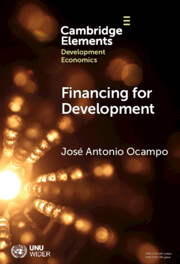Refine search
Actions for selected content:
110 results
Chapter 3 - World Literature as a Planned Economy
-
- Book:
- Five Economies of World Literature
- Published online:
- 09 December 2025
- Print publication:
- 29 January 2026, pp 79-106
-
- Chapter
- Export citation
Information Disorder and Global Politics
-
- Journal:
- International Organization / Volume 79 / Issue S1 / December 2025
- Published online by Cambridge University Press:
- 20 November 2025, pp. S26-S43
- Print publication:
- December 2025
-
- Article
-
- You have access
- Open access
- HTML
- Export citation
Global Climate Politics after the Return of President Trump
-
- Journal:
- International Organization / Volume 79 / Issue S1 / December 2025
- Published online by Cambridge University Press:
- 20 November 2025, pp. S88-S102
- Print publication:
- December 2025
-
- Article
-
- You have access
- Open access
- HTML
- Export citation
6 - China’s Energy Transition and Global Energy Governance
-
- Book:
- China's International Energy Relations
- Published online:
- 10 October 2025
- Print publication:
- 30 October 2025, pp 141-155
-
- Chapter
- Export citation
Chapter 12 - Cross-Channel Diplomacy and Postwar Bloomsbury
- from Part II - Global Bloomsbury
-
-
- Book:
- A History of the Bloomsbury Group
- Published online:
- 09 October 2025
- Print publication:
- 23 October 2025, pp 187-204
-
- Chapter
- Export citation
Introduction: Intelligence that Kills
-
- Book:
- Operation Wrath of God
- Published online:
- 12 August 2025
- Print publication:
- 07 August 2025, pp 1-14
-
- Chapter
- Export citation

Exit from International Organizations
- Costly Negotiation for Institutional Change
-
- Published online:
- 29 June 2025
- Print publication:
- 26 June 2025
9 - Revisiting Exit from IOs
- from Part IV - Conclusion
-
- Book:
- Exit from International Organizations
- Published online:
- 29 June 2025
- Print publication:
- 26 June 2025, pp 305-323
-
- Chapter
- Export citation
2 - Exit as a Costly Strategy to Negotiate Change
- from Part I - Introduction and Theory
-
- Book:
- Exit from International Organizations
- Published online:
- 29 June 2025
- Print publication:
- 26 June 2025, pp 34-64
-
- Chapter
- Export citation
12 - Conclusion
-
- Book:
- Civil War and Intrastate Armed Conflict
- Published online:
- 29 May 2025
- Print publication:
- 12 June 2025, pp 386-417
-
- Chapter
- Export citation
2 - Human Goals
-
- Book:
- Democracy for a Sustainable World
- Published online:
- 12 June 2025
- Print publication:
- 05 June 2025, pp 49-82
-
- Chapter
- Export citation
6 - Rowing the Triremes
-
- Book:
- Democracy for a Sustainable World
- Published online:
- 12 June 2025
- Print publication:
- 05 June 2025, pp 185-216
-
- Chapter
- Export citation
40 - Political and Diplomatic Control of the Implementation of International Decisions
- from Title 10 - The Enforcement of Decisions Rendered on the Basis of an International Litigation Action
-
- Book:
- International Human Rights Law
- Published online:
- 10 April 2025
- Print publication:
- 01 May 2025, pp 1148-1152
-
- Chapter
- Export citation
11 - The Universal System of Human Rights
- from Title 4 - The Institutional Architecture of the International Protection of Human Rights
-
- Book:
- International Human Rights Law
- Published online:
- 10 April 2025
- Print publication:
- 01 May 2025, pp 159-211
-
- Chapter
- Export citation
Industrial Policy and International Cooperation
-
- Journal:
- World Trade Review / Volume 24 / Issue 2 / May 2025
- Published online by Cambridge University Press:
- 28 May 2025, pp. 136-152
- Print publication:
- May 2025
-
- Article
-
- You have access
- Open access
- HTML
- Export citation
From Gridlock to Ratchet: Conditional Cooperation on Climate Change
-
- Journal:
- International Organization / Volume 79 / Issue 2 / Spring 2025
- Published online by Cambridge University Press:
- 22 May 2025, pp. 257-280
- Print publication:
- Spring 2025
-
- Article
-
- You have access
- Open access
- HTML
- Export citation
International Border Restrictions During COVID-19 as Global Health Security Theatre
-
- Journal:
- British Journal of Political Science / Volume 55 / 2025
- Published online by Cambridge University Press:
- 24 March 2025, e48
-
- Article
-
- You have access
- Open access
- HTML
- Export citation

Financing for Development
- The Global Agenda
-
- Published online:
- 13 March 2025
- Print publication:
- 10 April 2025
-
- Element
-
- You have access
- Open access
- HTML
- Export citation
Enhancements and next steps for the G7 Hiroshima AI Process: Toward a common framework to advance human rights, democracy and rule of law
- Part of
-
- Journal:
- Cambridge Forum on AI: Law and Governance / Volume 1 / 2025
- Published online by Cambridge University Press:
- 14 February 2025, e15
-
- Article
-
- You have access
- Open access
- HTML
- Export citation
11 - Policy Approaches to Defining and Enforcing Responsibilities for Online Platforms
-
-
- Book:
- Defeating Disinformation
- Published online:
- 30 January 2025
- Print publication:
- 06 February 2025, pp 180-192
-
- Chapter
-
- You have access
- Open access
- HTML
- Export citation
